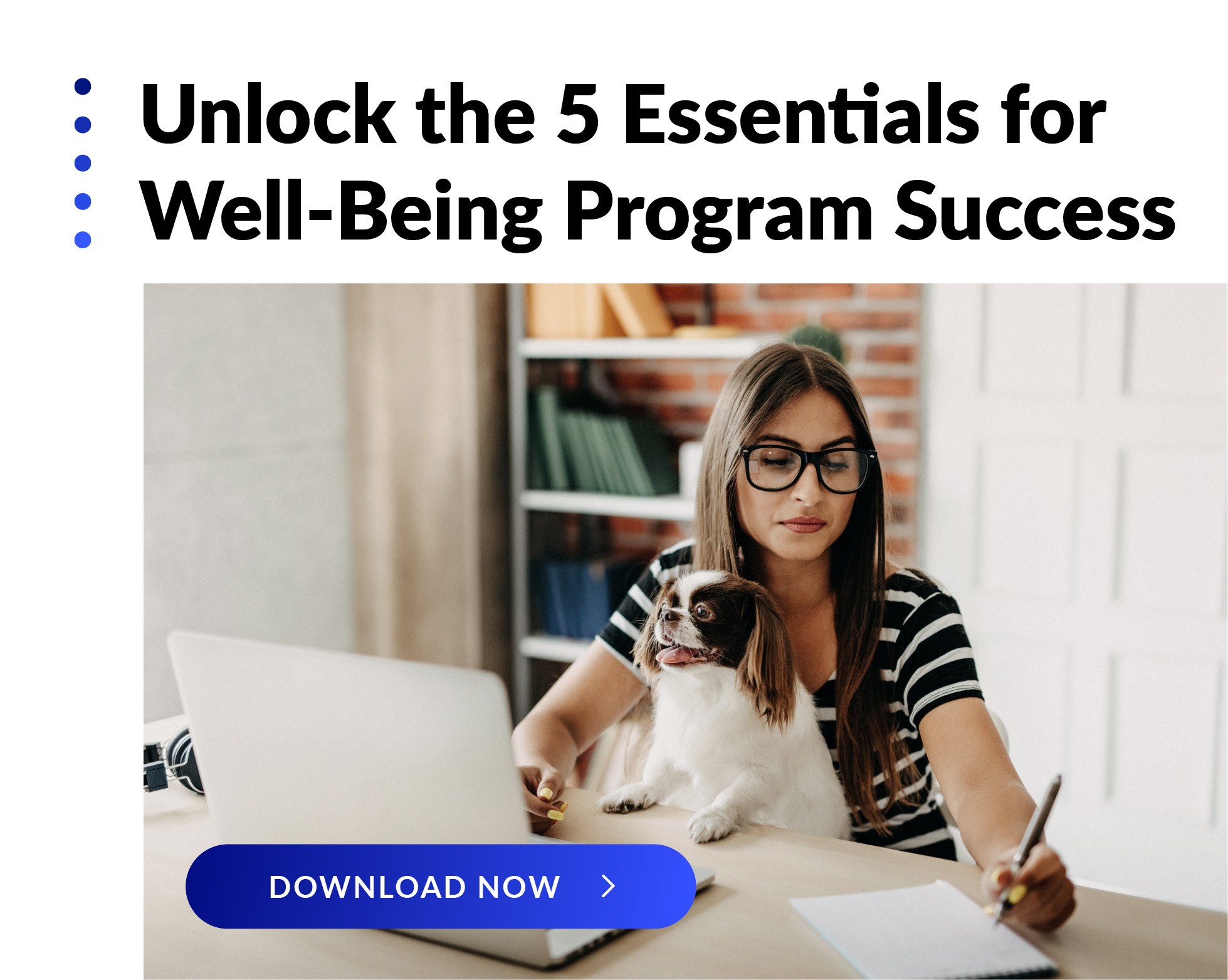 We now have four generations in the workforce at the same time, which means well-being programs will have to adapt to meet the needs of these very different groups. In particular, as Gen Z (ages 18 to 25) enters the workforce, we are learning that their needs are unique and go beyond what many well-being programs currently provide. Read on for some insights on this topic and how we can begin to shape our well-being programs for the workforce of the future.
We now have four generations in the workforce at the same time, which means well-being programs will have to adapt to meet the needs of these very different groups. In particular, as Gen Z (ages 18 to 25) enters the workforce, we are learning that their needs are unique and go beyond what many well-being programs currently provide. Read on for some insights on this topic and how we can begin to shape our well-being programs for the workforce of the future.
We know from our own research that Gen Z is faring the worst of all the generations when it comes to coping with the pandemic. About 90% of Gen Z respondents reported a negative impact on their health and well-being, and are significantly more likely to be stressed, eat poorly, worry about bills, and feel lonely. Nearly 70% also feel that their employers have not done enough to support their mental and physical health in this time.
So, it’s critical to address these well-being needs with programs to support mental health, financial wellness, physical activity (at-home fitness), and social connectedness in the short-term.
But what is it about this generation that we need to pay special attention to as we consider what well-being programs will look like after the pandemic?
They expect employers to be involved in less traditional aspects of well-being.
Members of older generations may view the recent expansion of well-being to include more holistic offerings as “nice-to-have” benefits. Not so for younger generations. These employees expect employers to be involved in their lives outside of the workday. They want programs to help with mental and emotional health, financial wellness, flexible work, time off to volunteer, and onsite daycare and fitness centers.
They want to work for a company that supports the causes they care about.
Younger generations are known for being passionate about climate change, social justice, and diversity and inclusion. They’re also more community-oriented and empathetic to others’ unique experiences—which means they may be more inclined to work for a company that supports diversity and broader social causes. Our research indicates that this could translate into expectations for things like pain medication addiction support, LGBTQ resources, and caregiver support.
They want to be able to access well-being and benefits information quickly.
Digital natives, members of Gen Z have grown up with information at their fingertips, so they like it when things are quick and convenient. If they have to dig deep to find information on well-being programs, they are likely to just give up before they even begin. Organizations must make sure their well-being benefits are easy to find, regularly promoted, and easy to use.
They will require more than a traditional EAP.
The pandemic has thrust EAPs into the spotlight as employees seek more support for mental health. For younger generations, though, the EAP may not be enough. We feel there are other programs that organizations should offer that will resonate more with younger generations. These include meditation apps, resilience training, educational workshops to reduce mental health stigmas in the workplace, mental health coaching, and mental and emotional health podcasts.
The good news? If you offer it, they will use it.
Younger generations are more likely than any other generation to actually use the well-being benefits you provide. For example, having grown up with elevated levels of anxiety and stress, Gen Z employees don’t feel the same type of stigma when it comes to mental health. They are more open to talking about these issues and seeking help when they need it.
Nearly 75% of Gen Z college students will graduate with student loan debt, so they are also extremely likely to take advantage of benefits like student loan repayment programs and financial wellness education.
When it comes to caregiving, this generation has witnessed firsthand their “sandwich generation” Gen X parents simultaneously caring for children and older relatives. It’s no surprise then that 64% of Gen Z respondents in our study indicated that employers should offer caregiving benefits, and will probably use them when the time comes for them to need these programs, too.
While younger generations may seem demanding, it’s not that they want more when it comes to well-being—it’s that they actually need more. If your organization is actively recruiting younger employees, it’s time to think about how you will address their unique well-being needs. Given the correlation between healthy, engaged employees and the bottom line, it will be time well-spent.
For more insights into our recent study, watch our on-demand webinar: Well-Being Disconnect: Employees Want More From Employers.
Related Content:

